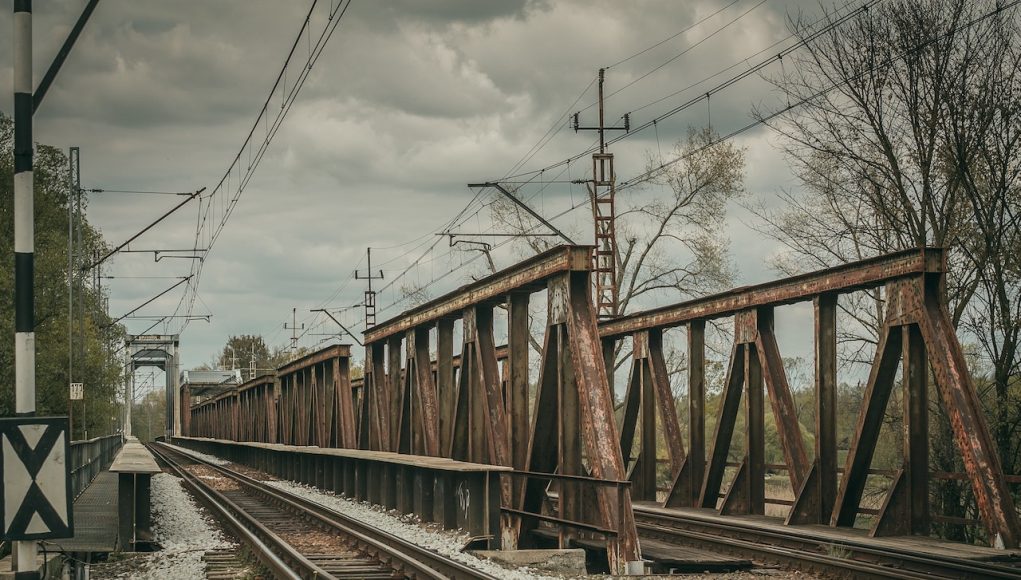Putting profit before life is a recipe for disaster
By David Suzuki with contributions from Senior Editor and Writer Ian Hanington
On February 3, a 150-car train carrying toxic chemicals derailed near East Palestine, Ohio. Close to half the town’s 4,700 residents had to evacuate as deadly gas and smoke fouled the air and chemicals contaminated waterways.
These and other railway disasters have something in common: the elevation of profit over safety. Trains are getting longer and heavier, with smaller crews. They also use air brake systems invented in the 1860s.
In 2014, the Obama administration proposed safety regulations to require speed limitations, minimum two-person train crews and electronic braking systems on U.S. trains carrying hazardous materials. Electronically controlled pneumatic braking systems can stop cars evenly and more quickly than sequentially applied air brakes, which can cause cars to jam into one another and derail.
Companies including Norfolk Southern, which operated the train that derailed in Ohio, lobbied against the regulations, because they would “impose tremendous costs.” Most were watered down to apply only to trains carrying crude oil, and in 2017, the Trump administration “killed provisions requiring rail cars carrying hazardous flammable materials to be equipped with electronic braking systems.”
Companies including Norfolk Southern, which operated the train that derailed in Ohio, lobbied against the regulations
“ECP brakes would have avoided that monster pile up behind the derailed car,” former senior Federal Railroad Administration official Steven Ditmeyer told USA Today. “In fact, depending on when the crew got the (error) notice from the wayside detector, applying the ECP brakes would have stopped everything very quickly.”
While laying off workers and lobbying against safety rules, railway operators including Norfolk Southern paid out US$196 billion (adjusted for inflation) in buybacks and dividends since 2010, far more than the $150 billion they spent on infrastructure, Surface Transportation Board chair Martin J. Oberman said in a 2021 speech. Norfolk Southern made a record $12.7 billion in revenue last year, and paid lobbyists $1.8 million. At least 20 of its derailments since 2015 have released chemicals.
In an economic system that rewards rapid growth and wealth accumulation (for the few), putting profits above safety is business as usual for many companies. In the 1960s, Ford Motor Company knew its Pinto’s gas tank could rupture and explode in rear-end collisions. It had patented a safer gas tank, but lobbied against a government safety standard and went ahead with the unsafe model.
In an economic system that rewards rapid growth and wealth accumulation … putting profits above safety is business as usual for many companies
In 1977, after some horrific deaths and injuries, Ford made minor alterations to meet the standard. According to Mother Jones, “Ford waited eight years because its internal ‘cost-benefit analysis,’ which places a dollar value on human life, said it wasn’t profitable to make the changes sooner.” Ford determined that a human life was worth about US$200,000 and that making the improvements (for about $11 a vehicle), which could prevent 180 deaths and countless injuries a year, was not cost-effective.
The article adds, “There are plenty of similar stories about other cars made by other companies.”
These kinds of cost-benefit analyses — along with rushed and inadequate procedures — are common in many facets of production under profit-obsessed economic systems. Often, ignoring safety is cost-effective from the cold standpoint of corporate executives. Profits generated usually dwarf the costs of lawsuits against car companies, small fines paid by mining, oil and gas companies that foul waterways or compensation paid by railway companies after disasters.
cost-benefit analyses — along with rushed and inadequate procedures — are common in many facets of production under profit-obsessed economic systems
Many companies face no consequences. Eight years after a tailings dam broke at the Mount Polley gold and copper mine in B.C. in 2014 — releasing more than 20 million cubic metres of mining wastewater into surrounding waterways in what is considered one of Canada’s worst mining disasters — two former engineers had to pay C$226,500; the company received no sanctions.
Many of the most profitable enterprises are actually rewarded for damage they cause. This is especially true of the fossil fuel industry, which is still raking in massive returns and executive salaries, along with generous subsidies, as its products fuel a crisis that threatens our survival!
What more evidence of systemic failure do we need before we change our ways? It’s abundantly clear that putting profit, endless growth and absurdly excessive, unequal wealth accumulation above environmental and human health, well-being and survival is suicidal.
A better way is possible — and absolutely necessary.








